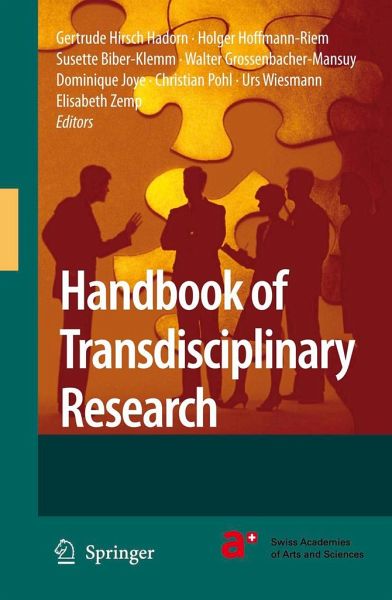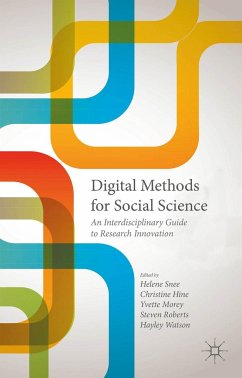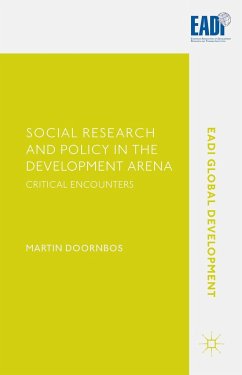
Handbook of Transdisciplinary Research
Versandkostenfrei!
Versandfertig in 6-10 Tagen
121,99 €
inkl. MwSt.
Weitere Ausgaben:

PAYBACK Punkte
61 °P sammeln!
Transdisciplinary research is an emerging field of research in the knowledge society for relating science and policy in addressing issues such as global environmental and socio-cultural change, new technologies, migration, and public health. This handbook provides exemplary projects and methodological developments, and provides 15 propositions for enhancing transdisciplinary research.
In a world characterised by rapid change, uncertainty and increasing interconnectedness there is a growing need for science to contribute to the solution of persistent, complex problems. These problems include not only some of the now broadly known environmental issues such as climate change and biodiversity loss, but also related issues such as poverty, security and governance. For all of these problems, progress in nding and implementing solutions has been very slow. The increase in availability of scienti c knowledge has not been re ected in decisive action. It is this mismatch between knowledge and action that lies behind the need for a Handbook of Transdisciplinary Research. As the editors point out in their introduction, a transdisciplinary orientation in research, education and institutions aims to overcome the disconnection between knowledge production, on the one hand, and the demand for knowledge to contribute to the solution of societal pr- lems, on the other hand. This is achieved through transdisciplinary approaches in which researchers from a wide range of disciplines work together with sta- holders. Internationally the term 'transdisciplinary research' is de ned in diff- ent ways, ranging from a diffuse conceptual term located above individual dis- plines, to any research that involves stakeholders. The Handbook contributes to a clari cation of both the concept and the term, and shows that the uniqueness of the approach lies in the partnership between members of different disciplines and stakeholders.














